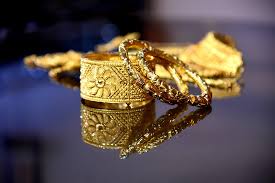
Merry Christmas, an astounding expression often heard during the Christmas season. There is a folkloric sense to every word. The term Merry is easy to describe, which certainly means being light-hearted and cheerful. The season for joy, goodwill, and happiness is Christmas. It is the unique season set aside to mark Jesus Christ’s birth. The festival of Christmas has grown to become a meaningful time for living in peace and love, although this was its original goal. Essentially, Christmas is a reminder of why we should stick to the chasmic parts of our humanity. That is, we are reminded by the celebration that we should share, donate to the less fortunate, spend time with loved ones, and overall have a good outlook on life.
Christmas is an annual festival celebrating the birth of Jesus Christ; it is celebrated as a cultural and religious celebration by many people around the world on December 25th. Christmas is simply a short version of the Mass of Christ. It is taken from the word ‘cristmasse’, which is a word from the old English word in Middle English, an expression first heard around 1038. Apart from Christmas, several other names such as midwinter, nativity, and so on have also named the day and holiday.
Christmas tradition goes back a very long time; the first Christmas that was celebrated in Rome was in 336. During the famous Arian dispute that took place in the 300s, it played a very significant part. It was replaced by Epiphany during the early years of the Middle Ages. About 800, when Emperor Charlemagne obtained the throne on Christmas day, Christmas was taken back to the limelight. The gospels of Luke and Mathew, which tell the story of the birth of Jesus Christ, are the history behind Christmas. Born in Bethlehem, he is declared to be the saviour of all men. The scene of his birth, also called the Nativity, is reconstructed in many homes and houses of worship using figurines. This is one of the important Christmas-related religious icons. The Christmas tree, sharing gifts, and so on are the other Christmas traditions. Houses are adorned using wreaths, Christmas trees, decorations, and stars in lovely colors of red, white, and green. Various ornaments such as bells, stars, and lights are used to decorate the Christmas tree. These are components of Christmas-associated enthusiasm. One of the main character of Christmas festivities is Santa Claus. As per the legend, on the eve of Christmas, which is the night of the 24th December, Santa Claus gives gifts to good children. Children sleep early on this day, expecting to get a present from Santa Claus the next morning when they get up.
As part of the tradition, they also hold sweets and milk by their beds for the Santa and a carrot for the Santa’s reindeer on which he flies. Jingle Bells, the famous song, celebrates the arrival of Santa to offer presents. India has a substantial Christian community. Also, being a secular society, with equal charm and agitation, festivals of all religions are celebrated. Christmas is no different from the festivals in India that are celebrated. It is celebrated by people of any religion and faith. To make children aware of the value of this festival, schools organize special meetings and assemblies. People are decorating their homes and offering presents to the kids. On this day, distinct traditional cuisines are depending on the regions. A few regions have outstanding Christmas Eve meals, such as in Sicily, where 12 kinds of fish are eaten. A regular dinner involves turkey, goose, or other large flying birds, gravy, rice, onions, bread, and juice now and then in the United Kingdom and nations influenced by its customs. For example, pudding, mince pies, nutty surprise, and Yule log cake are all arranged with excellent treats.
Christmas is such a holiday that, while being a Christian celebration, is observed by people from all faiths and denominations worldwide. It is the essence of this festival that so deeply unites the people. From this festival, and amid our religious distinctions, we should learn the meaning of such unity; we should all celebrate the festivals together. Festivals are probably a tool that has the potential to hold citizens together for humanity’s progress.
By SOFIA KHANAM, West Bengal


